The Command of Coast Guard Region 3 and units in the entire force continue to affirm their core role in protecting the sovereignty and security of the sea and islands of the Fatherland (In photo: Colonel Nguyen Minh Khanh, Deputy Commander, Chief of Staff of the Command of Coast Guard Region 3, commanded the exercise of search and rescue, fire prevention and fighting at sea)_Source: baobariavungtau.com.vn
Ensuring environmental security for sustainable development has long been of concern to our Party and State and has been specified in policies, guidelines, and laws. The 13th Party Congress Document clearly states: “Strengthening environmental protection, conservation, sustainable development of ecosystems, marine biodiversity, especially coral reefs, seagrass beds, mangrove forests, coastal protection forests; improving the efficiency of marine resource exploitation” (1) ... “preventing, controlling and significantly reducing marine environmental pollution; pioneering in the region in reducing ocean plastic waste” (2) and setting specific environmental goals by 2030: “basically achieving sustainable development goals on resources, environment and climate change response. The rate of facilities causing serious environmental pollution being treated reaches 100%; the rate of hazardous waste being destroyed and treated reaches 98%, of which the rate of medical waste being treated alone reaches 100%; the rate of industrial parks and export processing zones already in operation with centralized wastewater treatment plants meeting environmental standards reaches 100%; the reuse and recycling rate of domestic solid waste reaches over 65%" (3) .
From the guiding viewpoints of the Party, the National Assembly and the Government have concretized through institutions and policies on ensuring environmental security for sustainable development. The Law on Marine and Island Resources and Environment, promulgated on June 25, 2015; the Law on Environmental Protection was passed by the National Assembly on December 27, 1993, amended, supplemented and completed in 2014 and 2020. Accordingly, integrated management of marine and island resources is the organization and planning of policies, mechanisms, tools, inter-sectoral and inter-regional coordination to ensure that marine and island resources are exploited and used effectively, maintaining the functions and structures of the ecosystem for sustainable development, protecting Vietnam's sovereignty, sovereign rights, and national jurisdiction at sea and islands, ensuring national defense and security (4) . Clause 2, Article 4 of the Law on Environmental Protection 2020 emphasizes that environmental protection is a condition, foundation, central and prerequisite factor for sustainable socio-economic development. This is the legal basis for economic entities to comply with environmental protection regulations in the process of carrying out production and business activities (5) .
Decision No. 450/QD-TTg, dated April 13, 2022, of the Prime Minister approving the National Environmental Protection Strategy to 2030, with a vision to 2050, clearly states the goal: “Preventing the trend of increasing pollution and environmental degradation; solving urgent environmental problems; gradually improving and restoring environmental quality; preventing biodiversity loss; contributing to improving the capacity to proactively respond to climate change; ensuring environmental security, building and developing circular economic models, green economy, low carbon, striving to achieve the country's sustainable development goals 2030” (6) , setting out the task of “strengthening control of marine and island environmental pollution. Controlling and preventing pollution in coastal areas; investing in and consolidating infrastructure, equipment, implementing the collection and treatment of hazardous waste, wastewater, and solid waste activities that meet environmental standards in coastal localities. Proactively prevent, minimize and effectively handle sources of pollution from mineral exploitation, oil and gas, transportation and fisheries exploitation activities at sea; identify areas at risk of marine and island environmental pollution, and strictly control dumping activities at sea” (7) .
In recent years, environmental protection work in our country has had many positive changes, the system of legal documents is being gradually improved, awareness of environmental protection work of all levels, sectors and people has been raised, the level of increasing pollution, environmental degradation and environmental incidents has been gradually controlled, the work of preventing, combating and handling crimes and other violations of environmental laws has achieved certain achievements. However, the situation of environmental crimes in particular, and other violations of environmental laws in general, is still complicated, requiring full identification. building a system of synchronous solutions, aiming to improve the effectiveness of the fight against and prevention in the coming time.
Current status of environmental law violations in coastal areas managed by Region 3 Command
Currently, the sea areas managed by the Coast Guard Region 3 Command have been facing many problems regarding marine environmental security.
Firstly , violations of environmental laws in the field of waste and emissions treatment continue to occur in many localities, mainly concentrated in industrial parks, export processing zones, where enterprises and production facilities are concentrated... Many industrial parks and factories do not build wastewater treatment systems, or have built them but do not operate them or operate them only to deal with inspections by authorities, and regularly discharge untreated or treated wastewater that does not meet standards into the environment. Some enterprises violating environmental laws in discharging waste are one of the main causes of water pollution in rivers, canals, ponds and lakes, causing diseases for humans, livestock and crops.
Second , the situation of illegal mineral exploitation is still complicated in many areas, with diverse nature and scale of violations, such as small-scale exploitation without a license, exploitation beyond the licensed area, no exploitation design plan, no environmental restoration measures. In particular, the situation of sand and gravel exploitation occurs on most rivers. Failure to comply with legal regulations in investment and mineral exploitation, together with lax management by local authorities at all levels and functional agencies, leads to the situation of indiscriminate and uncontrolled mineral exploitation, causing loss of national resources, polluting water sources, causing landslides, and changing the flow.
Third , violations in illegal fishing and exploitation, the number of foreign fishing vessels violating Vietnam's waters, as well as Vietnamese fishing vessels illegally exploiting seafood in foreign waters being arrested and handled by foreign countries at different levels. Since 2017, the European Commission (EC) has issued a "yellow card" for Vietnam's illegal, unreported and unregulated fishing activities (abbreviated as IUU). Although the EC has organized many inspection teams on the above situation and made many recommendations to remove the "yellow card", in reality there are still many violations affecting the EC's decision.
Fourth , environmental pollution in fishing port areas; waste from ships and boats operating at sea, fishing boats... discharged directly into the sea without a waste filtering and separation system; ships and boats dumping waste directly into the sea (especially plastic waste in the ocean); waste from tourism activities in tourist areas flowing into the sea... drifting to the coast increases insecurity and safety, causing marine environmental pollution.
Combating crime and other environmental law violations in coastal areas managed by Region 3 Command
In recent times, the functional forces for preventing and combating crimes and other violations of environmental laws have deployed synchronous measures, coordinated with competent agencies to effectively combat all types of violations of environmental laws. Many cases of prolonged violations of environmental laws, causing public outrage, have been discovered and handled by competent agencies, creating trust and support from Party committees, authorities and people. The functional forces for preventing and combating crimes and other violations of environmental laws have investigated and grasped the situation in important areas, such as illegal mining. In 2023, the Command of Coast Guard Region 3 coordinated with competent agencies to combat and handle violations, such as: Handling 2 cases/4 ships (8) violating environmental laws (sand mining in inland waters); administrative fines of over 421 million VND; confiscated 615.8m3 of salty sand, auctioned for more than 42 million VND; collected the equivalent value of 4 ships, about 3.3 billion VND.
The Coast Guard Region 3 Command has coordinated well with other forces and agencies in the fight against crimes and other violations of environmental laws in coastal areas managed by the Region Command. In addition to regular coordination with the forces of the Naval Region 2 Command, Naval Region 4 Command, Coast Guard Region 4 Command, Border Guard forces, and police forces of coastal provinces and cities; the Coast Guard Region 3 Command has signed a coordination regulation in the management of activities related to the fisheries sector with Ho Chi Minh City and the provinces of Phu Yen, Khanh Hoa, Ninh Thuan, Binh Thuan, Ba Ria - Vung Tau, Tien Giang, Ben Tre, and Tra Vinh. Accordingly, the principle of the coordination regulations is to concentrate and unify the command and direction of the People's Committees of provinces and cities on the basis of the functions, tasks and powers of the Coast Guard Region 3 Command, ensuring close coordination, support and creating favorable conditions for the completion of assigned tasks, the task of preventing and combating violations of the law at sea, especially illegal, unreported and unregulated (IUU) fishing activities.
Faced with the situation of fishing vessels violating IUU regulations, the Command of Coast Guard Region 3 has maintained forces and means to prevent and combat IUU fishing in the waters managed by the Command of the Region; organized ships to be ready for combat in key areas (9) ; patrolled, inspected, controlled law enforcement at sea combined with preventing and combating IUU fishing, and propagated to Vietnamese fishing vessels in the area; coordinated with the Command of Coast Guard Region 4 to carry out patrol and control tasks against IUU fishing in the sea area bordering Vietnam - Malaysia - Thailand; strengthened inspection and review of fishing vessels operating at sea, anchorage areas at ports, coastal islands, promptly detected and handled fishing vessels operating for a long time without returning to the locality, fishing vessels removed from service, fishing vessels with expired registration, fishing vessels with fake license plates. In the past time, the Coast Guard Region 3 Command has directed ships to carry out patrol and control tasks at sea (10) ; closely and regularly maintain the operations of the Regional Command Center on monitoring the journey monitoring equipment of fishing vessels operating at sea via the VMS system; Monitor and promptly remind when there are signs of IUU fishing violations; strengthen coordination with functional agencies, navy, Border Guard, police, fisheries surveillance, local authorities... to continue to deploy solutions to prevent, minimize and end the situation of Vietnamese fishing vessels and fishermen illegally exploiting seafood in foreign waters. However, the situation of fishing vessels violating IUU still occurs. In 2023, in the sea area under the management of the Regional Command, 9 cases/13 fishing vessels/148 Vietnamese fishermen were verified and reported for violating foreign waters by illegally fishing and were inspected and arrested by foreign authorities (11) . From the beginning of 2024 to present, the Coast Guard Region 3 Command has coordinated with other forces to inspect and arrest 3 cases of fishing vessels sending tracking devices to other fishing vessels to illegally exploit seafood in foreign waters. The Command of Coast Guard Region 3 has coordinated with interdisciplinary inspection teams of several localities to survey the status of pollution violations in industrial parks and factories in the management area, assess the current status of pollution, the management and treatment of polluting sources, as a basis for inspection, examination and administrative sanctions on environmental protection for organizations and individuals who violate the marine environment.
In addition to positive results in the field of marine environmental protection, the fight against crimes and other violations of environmental laws still shows some limitations and shortcomings. These are: 1- The legal system in general, the law on the fight against crimes and other violations of environmental laws is not complete, not unified, not synchronized, not transparent, not deterrent enough to create a solid legal corridor for the work of preventing and combating crimes and other violations of environmental laws. 2- The coordination between forces in the prevention and combat of crimes and other violations of environmental laws is sometimes not synchronized, still confused, passive due to lack of experience and unclear mechanisms; the coordination in detection, investigation and handling is not unified. 3- The legal awareness of some levels and sectors on environmental protection is still limited; the work of propaganda, dissemination and education of environmental protection laws is not commensurate with the requirements of the task. 4- Forces and means in the fight against environmental protection are still limited and cannot meet the needs and requirements of the task.
Officers and soldiers of Coast Guard Region 3 Command propagate the law to fishermen of Phu Quy island district_Source: vov.vn
Solutions to improve the effectiveness of coordination between functional forces in implementing environmental security assurance in coastal areas in the current situation.
Firstly , perfecting policies and laws on marine environmental security. Faced with the challenges of marine environmental security as well as the current status of ensuring marine environmental security in Vietnam, it is necessary to continue to develop and promulgate a comprehensive legal document and direct regulations on marine environmental security issues on the basis of internalizing the provisions of international conventions that Vietnam has ratified and joined. These are important legal bases for coordination between forces to be synchronous and unified, achieving high efficiency.
Second , strengthen cooperation between relevant functional forces in detecting, investigating and handling violations of environmental laws. Specialized forces need to proactively grasp the situation of crimes and other violations of environmental laws to advise local Party committees and authorities to identify key areas and fields of environmental concern to focus forces on fighting. Periodically coordinate with functional agencies at all levels to organize summaries and draw lessons in the work of management, direction and organization of the fight against crimes and other violations of environmental laws.
Third , strengthen the work of building forces, considering the work of building forces as the key. Continue to innovate, improve and improve the quality of cadres working in the fight against crimes and other violations of environmental laws. Fully equip modern means, technical equipment and funds for the work of preventing and combating crimes and other violations of environmental laws. Limit the indiscriminate exploitation of natural resources from the sea.
Fourth , promote propaganda and mobilization work. Closely coordinate with local coastal authorities to raise public awareness, collect waste on offshore fishing vessels; mobilize and propagate fishermen fishing at sea to commit to limiting and gradually not using nylon packaging, hard-to-decompose plastic products, disposable plastic products in the purchase and sale of goods and necessities for fishing at sea; collect plastic waste, recyclable waste generated from boats and bring them ashore for treatment, prioritize the use of easily decomposable products, which can be recycled and used in an environmentally friendly manner for fishing at sea. At the same time, promote propaganda work to raise awareness among people in the area under the management of the Command not to litter, organize waste collection in coastal areas; Coordinate with localities to organize marine environmental protection activities, such as "Ocean cleaning campaign", "I love my homeland's sea and islands", and carry out environmental communication activities...
Fifth , strictly and scientifically control fishing and aquaculture activities towards controlling sustainable fishing activities; strictly handle acts of destructive fishing; strengthen remediation and improvement work to minimize marine environmental pollution, build marine reserves to protect and conserve marine biodiversity; build and perfect national marine spatial planning.
Sixth , strengthen coordination in managing waste from ships and boats at sea, prevent and respond to environmental incidents in seaport areas; check the pumping and discharge of dirty water from ships into seaport waters in violation of regulations; coordinate with functional forces to develop and deploy an online waste declaration system for transport ships when they dock to promptly inform relevant parties to effectively handle waste on board; improve the provision of waste collection and treatment services for ships and boats when they dock; strengthen measures to manage waste from ships, collect indirect fees for waste treatment, etc.
Seventh , strengthen international cooperation, exchange experiences in combating, handling violations and applying science and technology in pollution treatment and overcoming environmental incidents. Grasp the situation, developments in environmental security in the world and the region, the impacts causing environmental insecurity in the country, to promptly propose effective solutions to combat and prevent, contributing to protecting national security and maintaining social order and safety in the new situation./.
----------------------------
(1), (2) Documents of the 13th National Congress of Delegates , National Political Publishing House Truth, Hanoi, 2021, vol. I, pp. 258, 259
(3) Documents of the 13th National Congress of Delegates, op. cit ., vol. I, p. 276
(4), (5) See: Dr. Nguyen Thi Mien - Dr. Tran Thi Tuyet Lan: Ensuring environmental security for sustainable economic development of Vietnam, Electronic Communist Magazine , October 10, 2023, https://www.tapchicongsan.org.vn/web/guest/van_hoa_xa_hoi/-/2018/828838/bao-dam-an-ninh-moi-truong-de-phat-trien-ben-vung-kinh-te-viet-nam.aspx
(6), (7) See: Decision No. 450/QD-TTg, dated April 13, 2022, of the Prime Minister Approving the National Environmental Protection Strategy to 2030, with a vision to 2050
(8) The owner (Btr-8328; Btr-6191; SG-7189; HD-4268) violated: Exploiting sand in coastal inland waters without a mineral exploitation license from a competent state agency with a total volume of exploited minerals at the time of detecting the violation of 50m3 or more; prescribed in Point e, Clause 1, Article 48, Decree No. 36/2020/ND-CP dated March 24, 2020 of the Government; amended and supplemented in Clause 23, Article 2, Decree No. 04/2022/ND-CP dated January 6, 2022 of the Government
(9) Phu Quy island area, Lot 05 & 06.1 area; Sinh Ton Dong island area/ Truong Sa
(10) Organize closely, assign specific tasks, organize ships to perform patrol and control tasks, grasp the quantity, type, nature, and operating rules of fishing vessels, register and hand over statistics closely and specifically (quantity, registration number) of fishing vessels entering and leaving the sea area in the assigned management area.
(11) Malaysia arrested 7 cases/10 fishing boats/113 fishermen; Indonesia arrested 1 case/1 fishing boat/12 fishermen; China arrested 1 case/2 boats/13 fishermen; Provinces with fishing boats arrested by foreign authorities include: Ben Tre province had 2 cases/3 vehicles/15 crew members; Ca Mau province had 1 case/1 vehicle/20 crew members; Binh Dinh province had 1 case/1 vehicle/12 crew members; Ba Ria - Vung Tau province had 1 case/2 vehicles/13 crew members; Kien Giang province had 3 cases/5 vehicles/72 crew members
Source: https://tapchicongsan.org.vn/web/guest/quoc-phong-an-ninh-oi-ngoai1/-/2018/1081902/nang-cao-hieu-qua-quan-he-phoi-hop-giua-bo-tu-lenh-vung-canh-sat-bien-3-voi-cac-luc-luong-khac-trong-bao-dam-an-ninh-moi-truong-khu-vuc-ven-bien.aspx


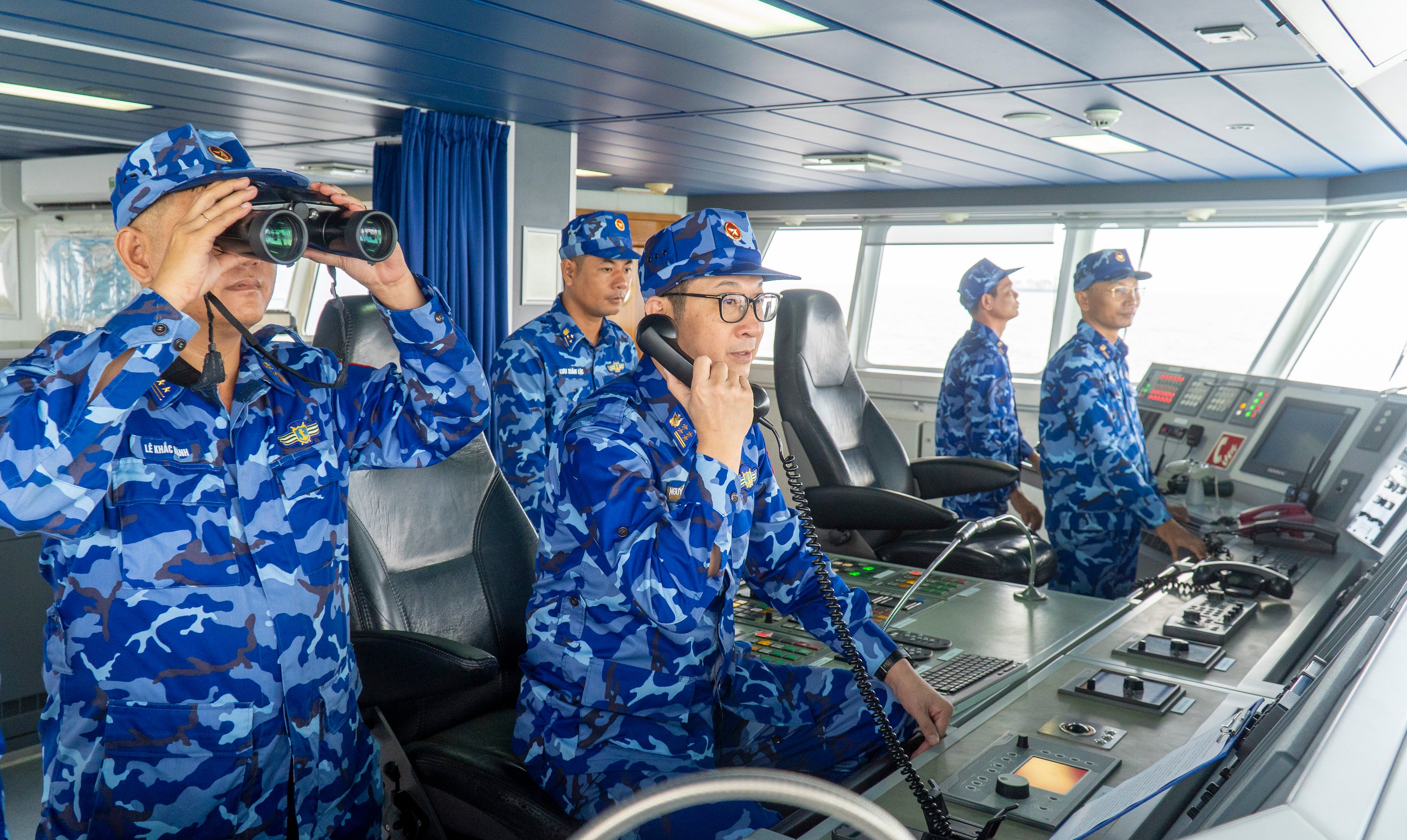
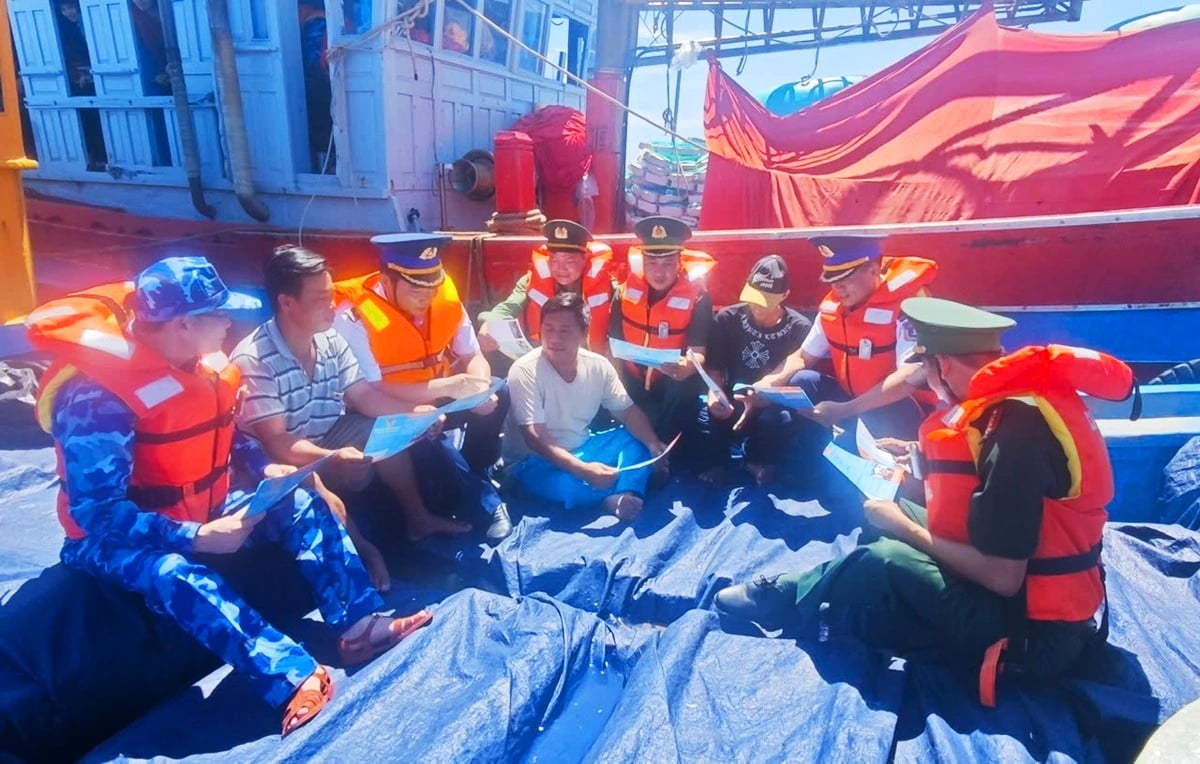
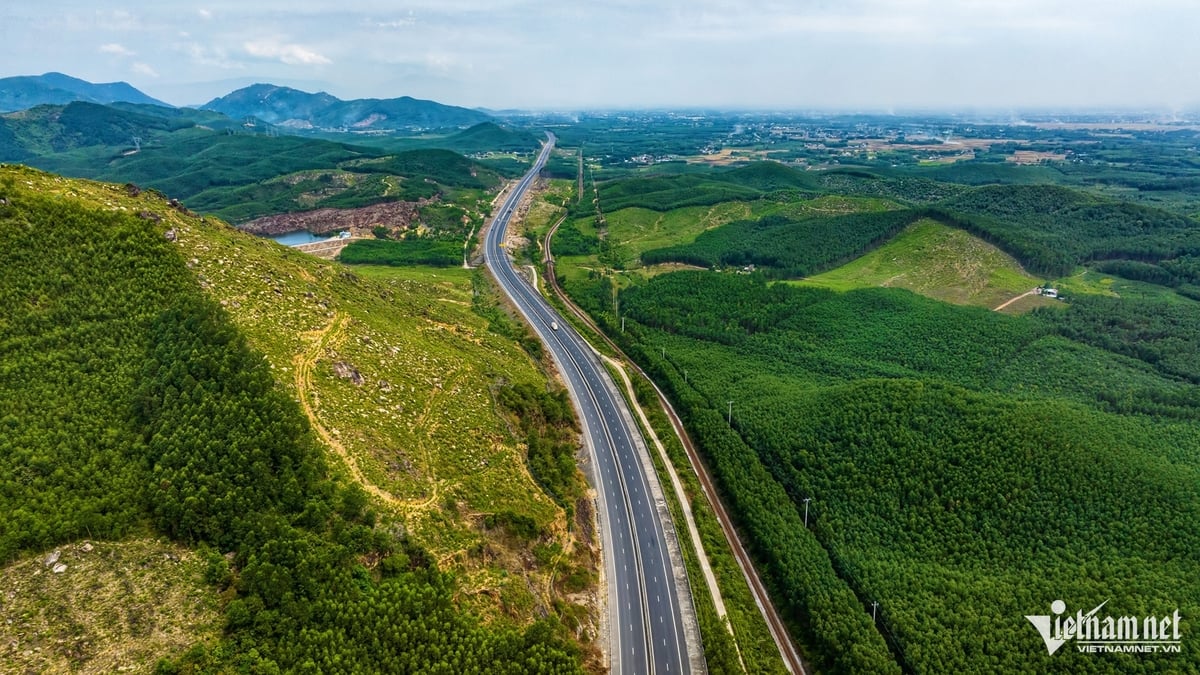

![[Photo] Close-up of Tang Long Bridge, Thu Duc City after repairing rutting](https://vphoto.vietnam.vn/thumb/1200x675/vietnam/resource/IMAGE/2025/5/19/086736d9d11f43198f5bd8d78df9bd41)
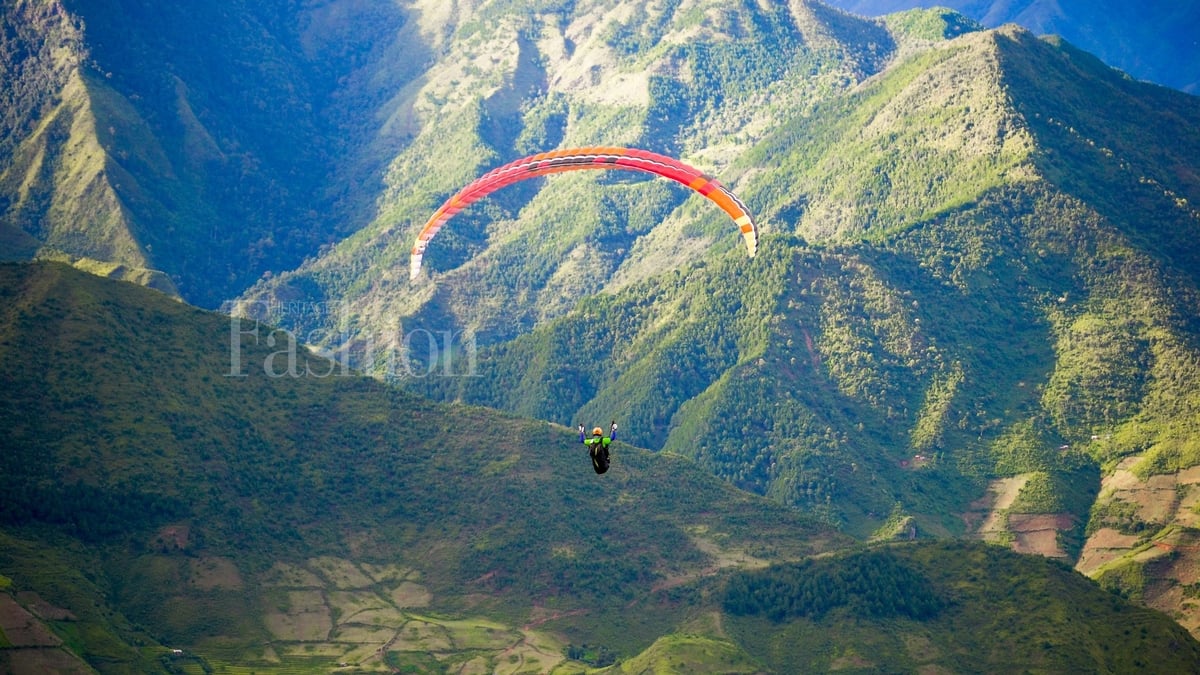
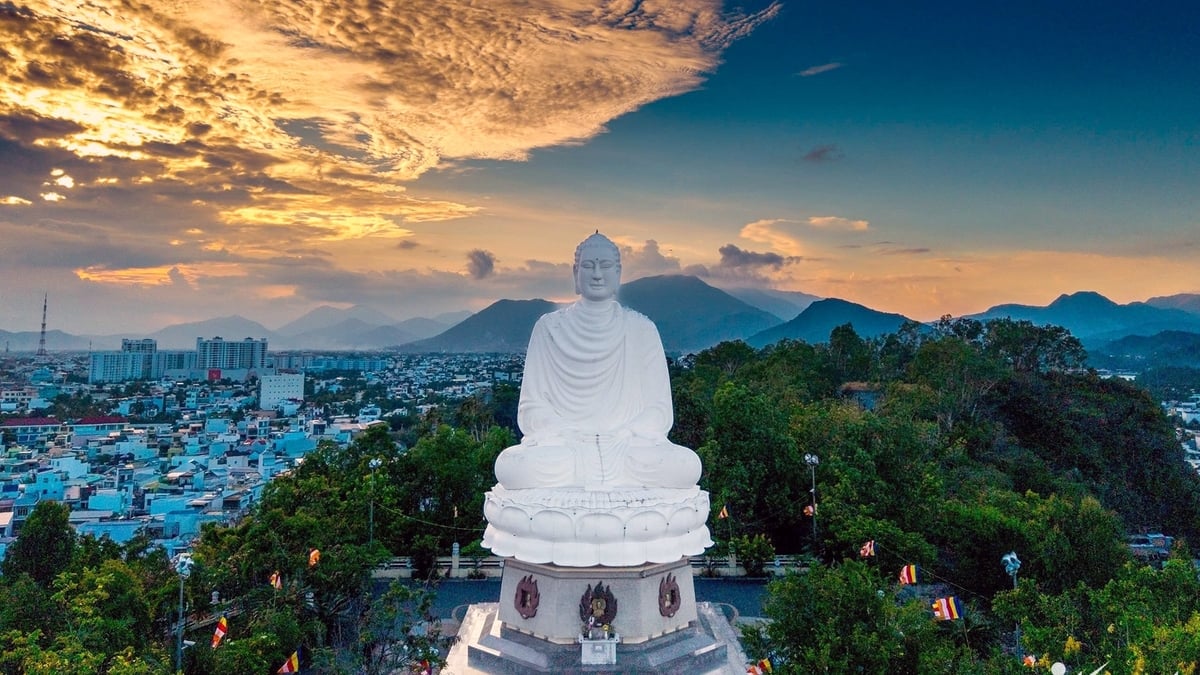
![[Photo] Panorama of the Opening Ceremony of the 43rd Nhan Dan Newspaper National Table Tennis Championship](https://vphoto.vietnam.vn/thumb/1200x675/vietnam/resource/IMAGE/2025/5/19/5e22950340b941309280448198bcf1d9)


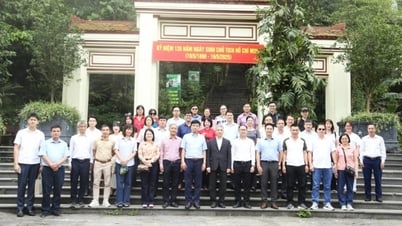

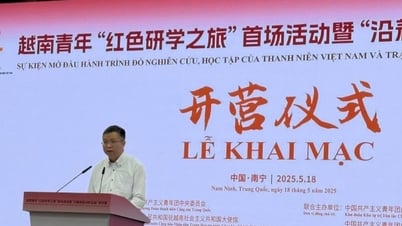








![[Photo] President Luong Cuong presents the 40-year Party membership badge to Chief of the Office of the President Le Khanh Hai](https://vphoto.vietnam.vn/thumb/1200x675/vietnam/resource/IMAGE/2025/5/19/a22bc55dd7bf4a2ab7e3958d32282c15)
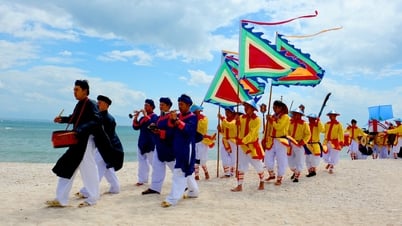

































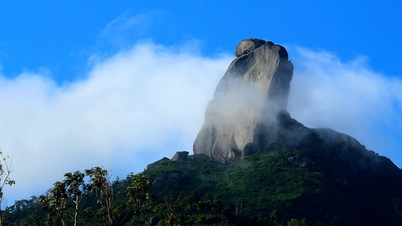
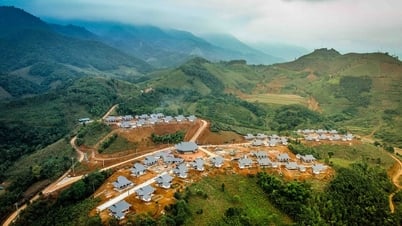













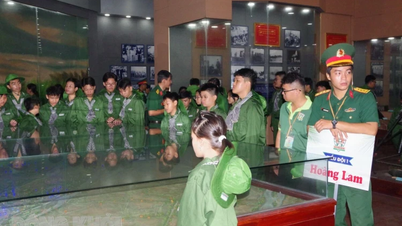



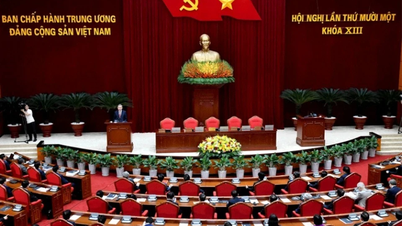



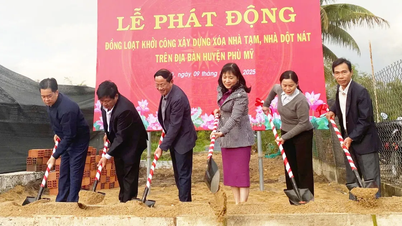








![[VIDEO] - Enhancing the value of Quang Nam OCOP products through trade connections](https://vphoto.vietnam.vn/thumb/402x226/vietnam/resource/IMAGE/2025/5/17/5be5b5fff1f14914986fad159097a677)


Comment (0)